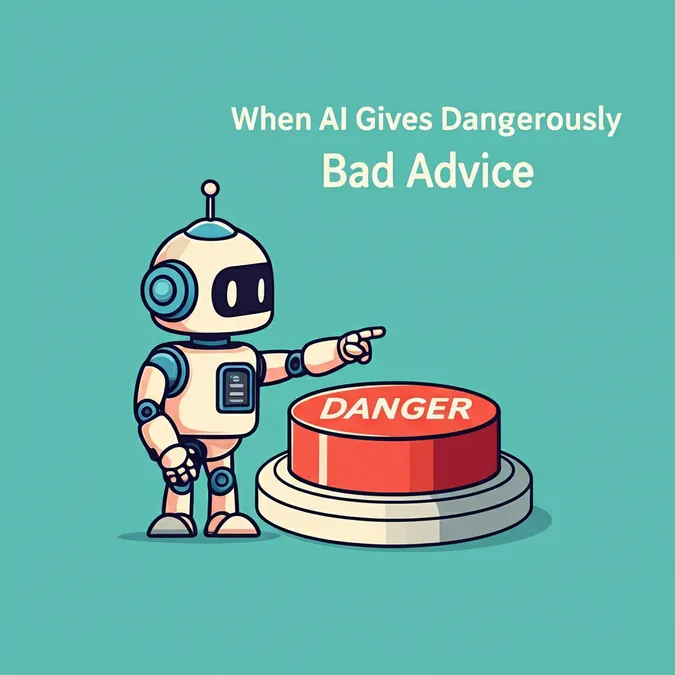Developer Offer
Try ImaginePro API with 50 Free Credits
Build and ship AI-powered visuals with Midjourney, Flux, and more — free credits refresh every month.
AI Search Is Your Law Firms New Top Referrer
A New Reality for Law Firm Client Acquisition
A quiet but rapid revolution is changing how sophisticated B2B clients find legal services. AI-powered search engines like ChatGPT, Perplexity, and Claude are no longer experimental novelties; they are becoming the primary research tools for your next big client. This is not a slow, gradual evolution. It's a fundamental acceleration in search behavior that is already reshaping the legal marketplace.
A powerful compounding effect is widening the gap between firms that are visible to AI and those that are not. Firms whose content gets recommended in AI responses see more website traffic, which in turn boosts their traditional search rankings. This creates a virtuous cycle of ever-increasing visibility. Meanwhile, digitally invisible firms are seeing their search presence decline, their competitive edge dull, and their market relevance fade. This divide is growing daily, and understanding how to get on the right side of it is crucial for survival and growth.
The Explosive Growth of AI Powered Search
The data behind this shift reveals a new landscape that demands a new marketing strategy. Consider the staggering growth rates:
- ChatGPT: User adoption is growing at an incredible 150% month-over-month.
- Perplexity and Claude: These platforms saw a combined 22% growth in the same period.
- Traffic Generation: ChatGPT is already a referral powerhouse, sending 4 times more traffic than competing AI platforms.
For law firms, this means that while foundational SEO metrics like keyword rankings and organic traffic are still important, they are now part of a larger ecosystem. Success now requires a dual focus on both traditional search optimization and AI search visibility.
The Great Divide: AI-Visible vs AI-Invisible Firms
This new reality is creating a clear split in the legal industry.
AI-Visible Firms (The Winners) are benefiting from:
- An amplified digital presence driven by AI recommendations.
- Content that consistently appears in AI-generated answers.
- A compounding cycle of increased mentions leading to higher search rankings.
- Higher-quality leads who are pre-qualified through their AI interactions.
Digitally Invisible Firms (The Losers) are facing:
- A decline in organic visibility as AI Overviews intercept traditional search traffic.
- A complete lack of AI-driven referrals and leads.
- The growing risk of becoming irrelevant as client behavior shifts for good.
- Losing ground to competitors who appear more modern and technologically advanced.
How AI Search Builds on Traditional SEO
AI search is not a replacement for SEO; it's an extension of it. The content that AI engines discover, understand, and recommend is almost always sourced from top-ranking traditional search results. In fact, research shows that sources in Google's AI Overviews match one of the top 10 organic results 99.5% of the time. Therefore, a strong SEO foundation is non-negotiable.
Traditional SEO Essentials (Still Critical):
- Strategic keyword research
- High-quality link building and domain authority
- A technically sound and fast website
- Excellent on-page optimization and user experience
- Helpful, high-quality content
AI Search Optimization Additions:
- Content that directly answers specific user questions.
- Clear demonstrations of Experience, Expertise, Authority, and Trustworthiness (E-E-A-T).
- Use of conversational, natural language.
- Comprehensive and deep coverage of key topics.
- A commitment to real-time accuracy and regular content updates.
Your Action Plan for AI Search Dominance
The gap is widening, but it’s not too late to act. Use this timeline to build immediate momentum and secure a long-term advantage.
Immediate Actions (Next 30 Days)
- Review existing content through an AI lens: Is your content structured in a Q&A format? Do you have comprehensive FAQ sections? Are your E-E-A-T signals clear? Can an AI easily identify your credentials and specializations?
- Optimize your Google Business Profile: Ensure all information is complete, post regular updates, add professional photos, and actively manage client reviews.
Medium-Term Strategies (3-6 Months)
- Develop authoritative content hubs: Create pillar pages for each practice area, supported by cluster content that answers related questions. Internally link these pages to demonstrate topical depth.
- Build real-world authority: Publish original research, guest post on respected legal sites, participate in podcasts and webinars, and get involved in professional associations.
- Ensure technical excellence: Optimize for Core Web Vitals, ensure a flawless mobile experience, and use structured data to help AI categorize your content.
Long-Term Positioning (6-12 Months)
- Continuously create helpful content: Build comprehensive resource hubs and maintain a schedule for regular content updates.
- Measure and optimize: Track AI-specific metrics like citation frequency and referrals from AI platforms to monitor your performance and ROI.
- Stay ahead of the curve: Monitor competitor strategies, identify content gaps, and maintain a culture of learning to adapt as the AI landscape evolves.
Redefining Success with New AI-Era Metrics
Success in this new era requires expanding your measurement framework.
Traditional Metrics (Still Important):
- Organic traffic and conversions
- Keyword rankings
- Website engagement
AI-Era Metrics (Increasingly Critical):
- Frequency of citations in AI engine responses
- Appearances in featured snippets and AI Overviews
- Tracked referrals from AI platforms
- Brand mentions in AI answers
To calculate your true ROI, evaluate the quality of AI-referred leads, the cost efficiency versus other channels, and the long-term value of these client relationships.
Avoiding Common Pitfalls in Your AI Strategy
- Don't panic about replacement: AI is a tool that augments, not replaces, legal expertise. Use it to demonstrate your firm's ability to leverage technology for better client outcomes.
- Don't over-optimize for AI: Your primary audience is still human. Create content that is genuinely helpful to people, and AI recommendations will follow naturally. Maintain your brand voice and don't sacrifice readability for algorithms.
- Don't forget ethics: AI can amplify inaccurate information quickly. Ensure all content is factually correct and includes necessary disclaimers about the need for specific legal advice. Adhere strictly to all rules for legal advertising.
Preparing for the Next Wave of AI in Legal Search
The pace of change will only accelerate. Meta's integration of AI search and Google's upcoming Gemini 2.0 will introduce new ways for clients to find legal help. We may even see specialized AI search engines focused exclusively on legal research.
The firms that will thrive are those building adaptable strategies today. This means diversifying your marketing channels, creating content that works across multiple platforms, and fostering a culture of continuous learning and rapid adaptation.
The Final Choice: Adapt or Become Invisible
The question is no longer if AI search will become important, but whether your firm will be a part of it. The firms that embrace this transformation will lead the next generation of the legal marketplace. Those that ignore it risk fading into obscurity. The time to act is now.
This post was adapted from an article originally published by 9Sail.
Compare Plans & Pricing
Find the plan that matches your workload and unlock full access to ImaginePro.
| Plan | Price | Highlights |
|---|---|---|
| Standard | $8 / month |
|
| Premium | $20 / month |
|
Need custom terms? Talk to us to tailor credits, rate limits, or deployment options.
View All Pricing Details

